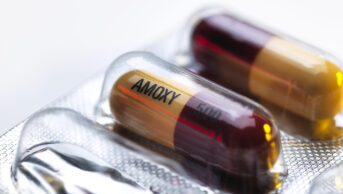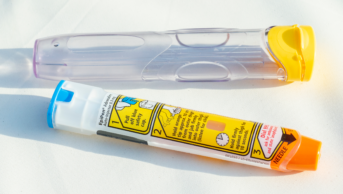
Courtesy of Tania Ewing / International Congress of Immunology
Some studies have found that giving probiotics to newborn babies reduces their risk of allergy later in life but the mechanism of action is unknown.
To explore, researchers from Charles University in Prague compared blood samples taken at the age of six from children who were given an Escherichia
coli-based probiotic supplement shortly after birth with samples from children who were not given probiotics.
The team found that the functional characteristics of regulatory T cells (Tregs) were decreased in all children born to allergic mothers. But in those who received the probiotic, some of this function was restored compared with non-supplemented children.
The researchers, who reported their findings at the International Congress of Immunology in Melbourne, Australia, on 22 August 2016[1]
say the results suggest that Tregs play a role in mediating the effect of probiotics on allergy.
References
[1] Hrdý J, Sukenikova L, Novotna O et al. The effect of early postnatal colonisation of newborns by probiotic vaccine Colinfant New Born on allergy incidence and immune system characteristics. Presented at: International Congress of Immunology; 21–26 August 2016; Melbourne, Australia. doi: 10.1002/eji.201670200


